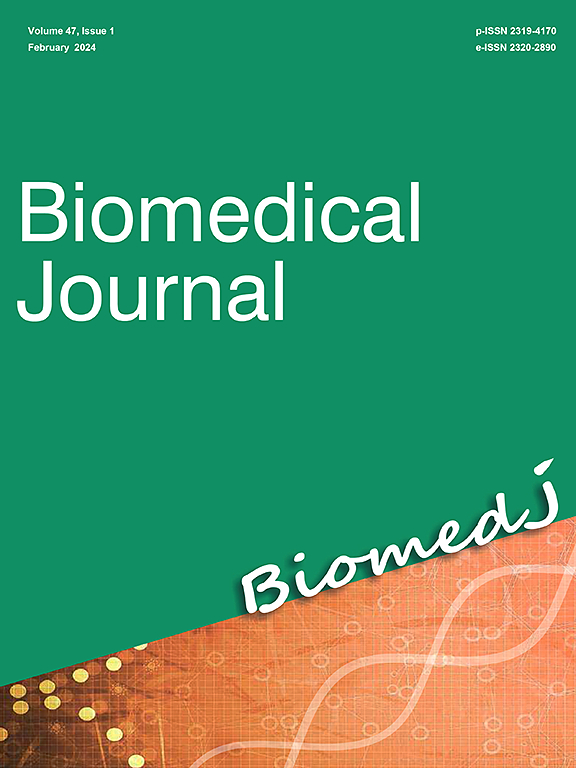Genomic surveillance of SARS-CoV-2 in Taiwan: A perspective on evolutionary data interpretation and sequencing issues
IF 4.4
3区 医学
Q2 BIOCHEMISTRY & MOLECULAR BIOLOGY
引用次数: 0
Abstract
This review presents a comprehensive perspective on the genomic surveillance of SARS-CoV-2 in Taiwan, with a focus on next-generation sequencing and phylogenetic interpretation. This article aimed to explore how Taiwan has utilized genomic sequencing technologies and surveillance to monitor and mitigate the spread of COVID-19. We examined databases and sources of genomic sequences and highlighted the role of data science methodologies in the explanation and analyses of evolutionary data. This review addressed the challenges and limitations inherent in genomic surveillance, such as concerns regarding data quality and the necessity for interdisciplinary expertise for accurate data interpretation. Special attention was given to the unique challenges faced by Taiwan, including its high population density and major transit destination for international travelers. We underscored the far-reaching implications of genomic surveillance data for public health policy, particularly in influencing decisions regarding travel restrictions, vaccine administration, and public health decision-making. Studies were examined to demonstrate the effectiveness of using genomic data to implement public health measures. Future research should prioritize the integration of methodologies and technologies in evolutionary data science, particularly focusing on phylodynamic analytics. This integration is crucial to enhance the precision and applicability of genomic data. Overall, we have provided an overview of the significance of genomic surveillance in tracking SARS-CoV-2 variants globally and the pivotal role of data science methodologies in interpreting these data for effective public health interventions.
台湾SARS-CoV-2基因组监测:进化数据解释和测序问题的视角
本文综述了台湾地区SARS-CoV-2的基因组监测情况,重点介绍了新一代测序和系统发育解释。本文旨在探讨台湾如何利用基因组测序技术和监测来监测和缓解COVID-19的传播。我们检查了基因组序列的数据库和来源,并强调了数据科学方法在解释和分析进化数据中的作用。这篇综述讨论了基因组监测中固有的挑战和局限性,例如对数据质量的关注和跨学科专业知识对准确数据解释的必要性。会议特别关注了台湾面临的独特挑战,包括其人口密度高和国际旅客的主要过境目的地。我们强调了基因组监测数据对公共卫生政策的深远影响,特别是在影响有关旅行限制、疫苗管理和公共卫生决策的决策方面。对研究进行了审查,以证明利用基因组数据实施公共卫生措施的有效性。未来的研究应优先考虑进化数据科学的方法和技术的整合,特别是关注系统动力学分析。这种整合对于提高基因组数据的准确性和适用性至关重要。总体而言,我们概述了基因组监测在全球追踪SARS-CoV-2变异中的重要性,以及数据科学方法在解释这些数据以进行有效公共卫生干预方面的关键作用。
本文章由计算机程序翻译,如有差异,请以英文原文为准。
求助全文
约1分钟内获得全文
求助全文
来源期刊

Biomedical Journal
Medicine-General Medicine
CiteScore
11.60
自引率
1.80%
发文量
128
审稿时长
42 days
期刊介绍:
Biomedical Journal publishes 6 peer-reviewed issues per year in all fields of clinical and biomedical sciences for an internationally diverse authorship. Unlike most open access journals, which are free to readers but not authors, Biomedical Journal does not charge for subscription, submission, processing or publication of manuscripts, nor for color reproduction of photographs.
Clinical studies, accounts of clinical trials, biomarker studies, and characterization of human pathogens are within the scope of the journal, as well as basic studies in model species such as Escherichia coli, Caenorhabditis elegans, Drosophila melanogaster, and Mus musculus revealing the function of molecules, cells, and tissues relevant for human health. However, articles on other species can be published if they contribute to our understanding of basic mechanisms of biology.
A highly-cited international editorial board assures timely publication of manuscripts. Reviews on recent progress in biomedical sciences are commissioned by the editors.
 求助内容:
求助内容: 应助结果提醒方式:
应助结果提醒方式:


